Movies to Watch if You Like ‘Pride and Prejudice’
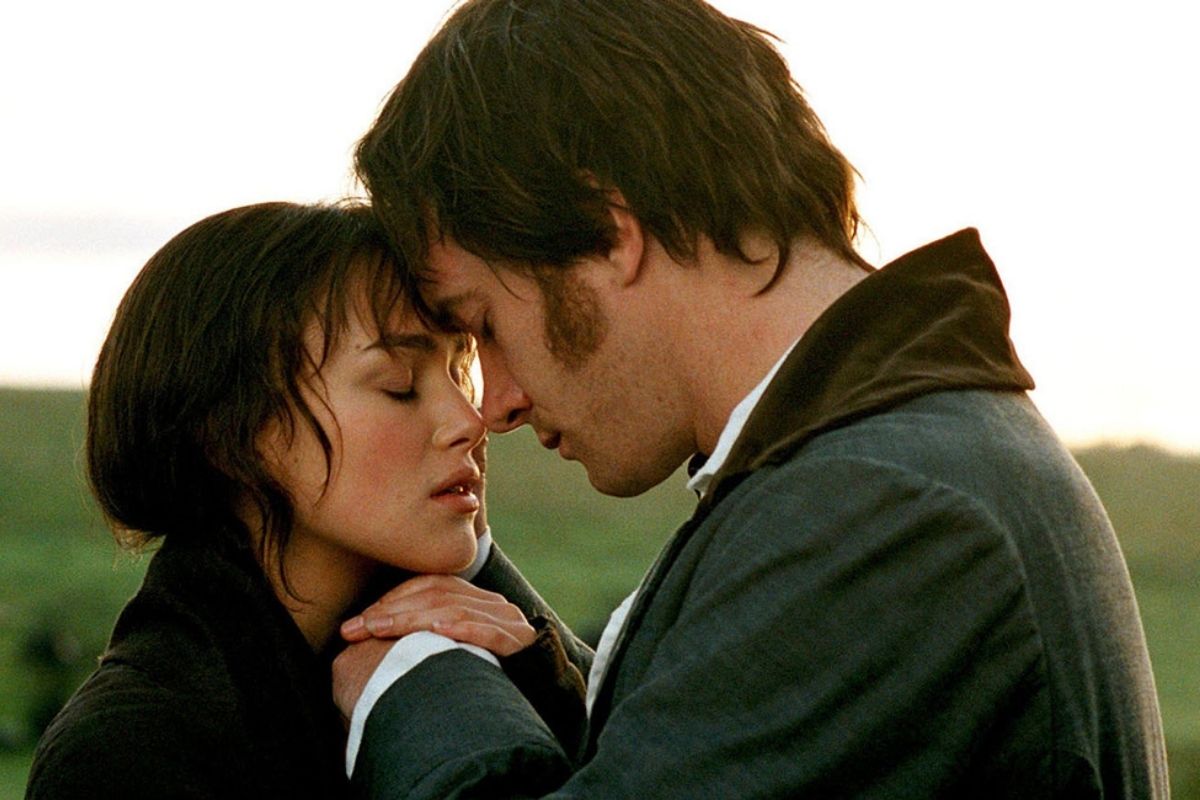
It’s always “I love you,” never “You have bewitched me body and soul, and I love, I love, I love you. And wish from this day forth never to be parted from you.” But hey, one can dream. Joe Wright’s Pride and Prejudice remains the gold standard when it comes to both period films and Jane Austen adaptations for a slew of reasons (although we’ll always have the Colin Firth diehards). There’s the beautiful cinematography, the excellent screenplay, and the fact that Keira Knightley plays Elizabeth Bennet. At this point, if someone told me that Keira Knightley is a time traveler from the 1800s, I’d believe them. She’s that good in period films.
The classic story has been adapted countless times through the years, but none have quite stood out like the 2005 version. Still, if you’re in need of a quick Austen fix or something that just feels as close to what Pride and Prejudice gives, then you’ve come to the right place.
Sense and Sensibility (1995)
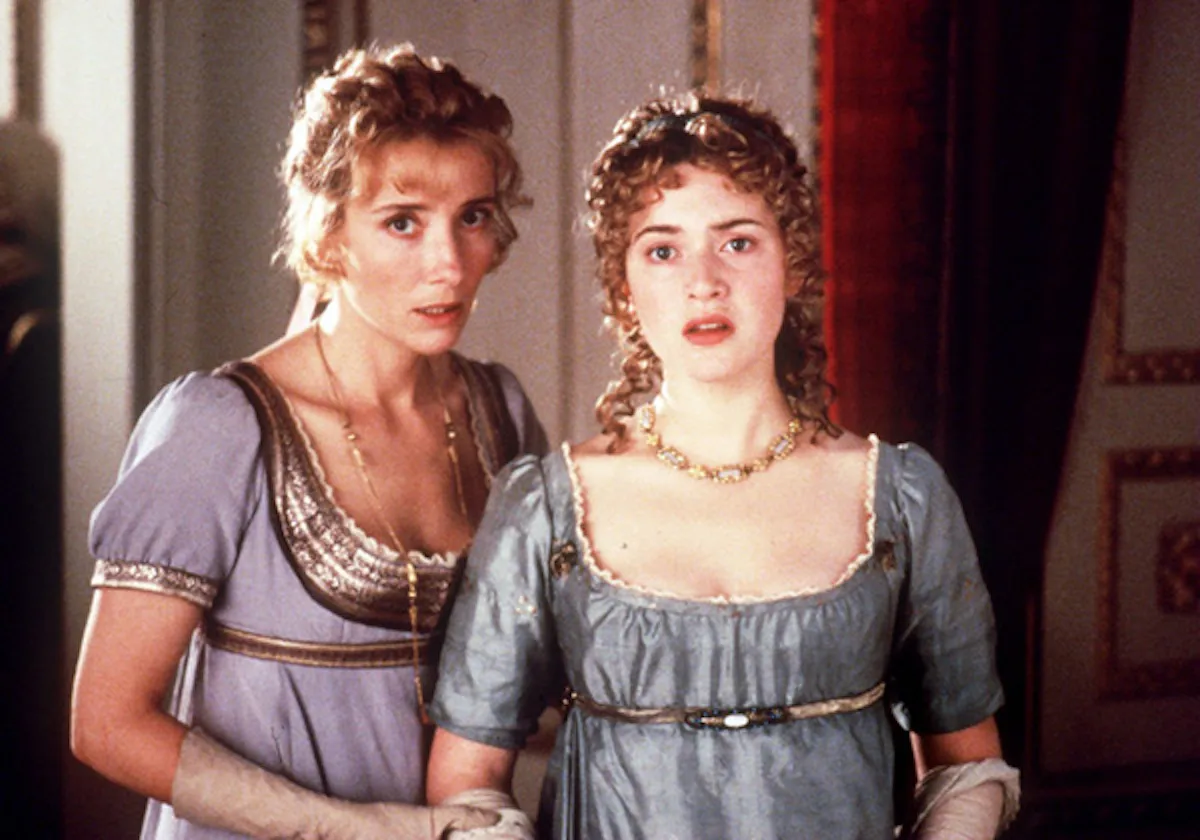
Second only to Pride and Prejudice, Sense and Sensibility is easily one of Austen’s best-known works. The story has also been adapted several times through the years, but the 1995 version directed by Ang Lee (Crouching Tiger, Hidden Dragon) will always be a favorite. The film stars Emma Thompson and Kate Winslet as the Dashwood sisters who, after the death of their father, are left virtually penniless due to the sexist laws of succession and inheritance. Their best and safest solution? Getting married to an eligible and wealthy bachelor. But as we all know, in the world of Austenland, it isn’t always as straightforward and easy as that.
Bridget Jones’s Diary (2001)

Colin Firth has achieved many great things throughout his career. He’s won an Oscar, a Golden Globe, three Screen Actors Guild Awards, and holds the unique distinction of having played the dashing Mr. Darcy twice. He first played Mr. Darcy in the 1995 Pride and Prejudice miniseries before agreeing to play Mark Darcy in 2001’s Bridget Jones’s Diary, a modern riff on Austen’s classic romance. In this version, Bridget Jones (Renee Zellweger) is single and trying to navigate the complicated waters of dating and her tedious job. To make matters worse, she ends up having a botched affair with her boss (Hugh Grant) and crosses paths with Firth’s Darcy, a snobby lawyer. But much like the O.G. Darcy, underneath Mark’s haughty exterior is a swoon-worthy romantic lead.
Atonement (2007)
Atonement came right on the heels of Pride and Prejudice and was a deliciously wonderful adaptation of the Ian McEwan novel of the same name. The film reunites director Joe Wright and star Keira Knightley in a heartbreaking romance set against the backdrop of World War II. The movie follows star-crossed lovers Cecilia (Knightley) and Robbie (James McAvoy), who were driven apart because of a false accusation that led to Robbie’s imprisonment. The film also features a young Juno Temple (Ted Lasso) and Saoirse Ronan (Ladybird) in a breakout role that earned her an Oscar nomination.
Becoming Jane (2007)
This list wouldn’t be complete without a movie about Austen herself. 2007’s Becoming Jane stars Anne Hathaway as Jane Austen and chronicles her early years and love for Tom Lefroy (James McAvoy), a charming but struggling lawyer. The film explores Austen’s home life, and the pressure from her parents to find a suitable match. It’s a theme that Austen would repeatedly explore in her work, despite never marrying herself.
The Young Victoria (2009)
Julian Fellowes is best known for the Downton Abbey universe and, more recently, The Gilded Age, but we also have him to thank for 2009’s The Young Victoria. The film starred Emily Blunt as Victoria, one of Britain’s most notable monarchs, and followed her early life and her union with her beloved consort, Prince Albert (Rupert Friend). The two are, of course, known for being one of the very few royal marriages borne out of both love and duty. It’s well-known that Victoria mourned Albert until the day she died, but when the narration stated that she laid out his clothes every morning until she passed, I sobbed buckets.
Jane Eyre (2011)

Jane Eyre is another beloved classic novel (this time from Charlotte Brontë) that has received countless adaptations. But none have quite hit the mark like the 2011 version directed by Cary Fukunaga. The film starred Mia Wasikowska (Alice in Wonderland) and Michael Fassbender (Prometheus) as Jane and her love interest, Mr. Rochester, and was an excellent homage to the source material. From the backdrop of Thornfield to the build-up of the romance, this rendition of Jane Eyre stayed true to the book’s themes.
Anna Karenina (2012)

Anna Karenina was Keira Knightley’s third collaboration with Joe Wright and, in my view, is an underrated gem. The film (based on the Tolstoy novel of the same name) follows Knightley as Anna, a wealthy lady who is unfortunately stuck in an unhappy marriage. That is until she strikes up an affair with handsome cavalry officer Vronsky (played by Aaron Taylor-Johnson). The film feels almost like a stage play and, much like Wright’s previous work, showcases beautiful use of colors and scenery. The production accurately brings to life the extravagance of Imperial Russia, all while seamlessly unfolding the epic tragedy.
Far From The Madding Crowd (2015)
Far From The Madding Crowd is another prestige literary adaptation, this time from the famous Thomas Hardy novel. Thomas Vinterberg’s film embodies that sense of yearning that most of us probably look for in romantic period pieces. The film follows the life of Bathsheba (Carey Mulligan), a young woman who finds herself inheriting her uncle’s farm upon his death. Three suitors pursue her throughout the course of the story, but there’s one particular man with whom she’s always felt the closest. The film also stars Matthias Schoenaerts (The Old Guard), Tom Sturridge (The Sandman), and Michael Sheen (Good Omens).
Little Women (2019)
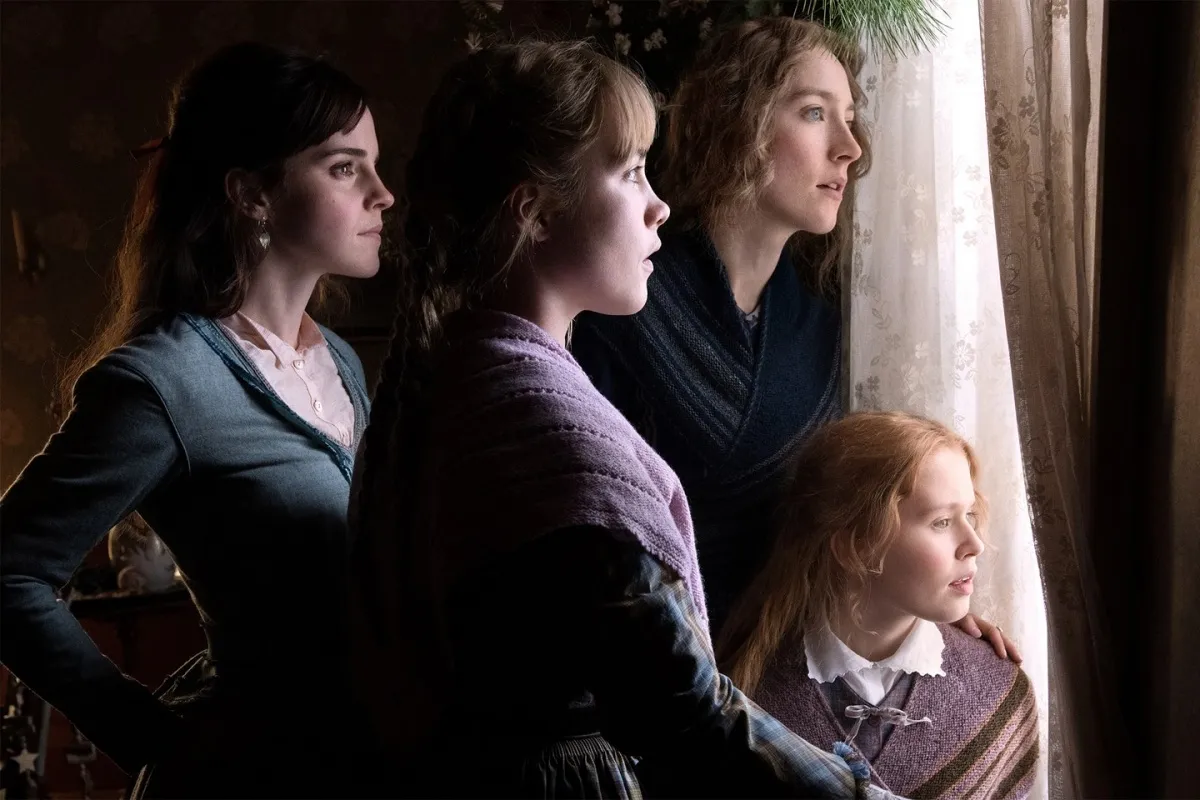
I love every version of Little Women, probably because it’s literally impossible to dislike Louisa May Alcott’s iconic novel. Director Greta Gerwig brought the beloved March sisters back to the silver screen through actresses Emma Watson, Saoirse Ronan, Eliza Scanlen, and Florence Pugh. This 2019 adaptation, unlike most of its predecessors, does not follow the March sisters’ lives chronologically. Rather, it jumps between the past and the present to better showcase their growth. This choice proved to be an excellent decision on Gerwig’s part. I mean, Jo’s monologue about feeling lonely? Or that scene between Amy and Laurie where she talks about the necessity of marrying well? Unmatched.
Emma (2020)

The Queen’s Gambit star Anya Taylor-Joy absolutely delivered in 2020’s Emma. Set during the Regency era, Emma follows clever but meddlesome Emma Woodhouse, whose life mission is to be her town’s resident matchmaker. The film makes the most out of its source material’s humor and brings it to life through lively pops of color and humorous banter between Emma and her love interest, Mr. Knightley (Johnny Flynn). I swear, if I loved this movie less I might be able to talk about it more.
Love, Actually
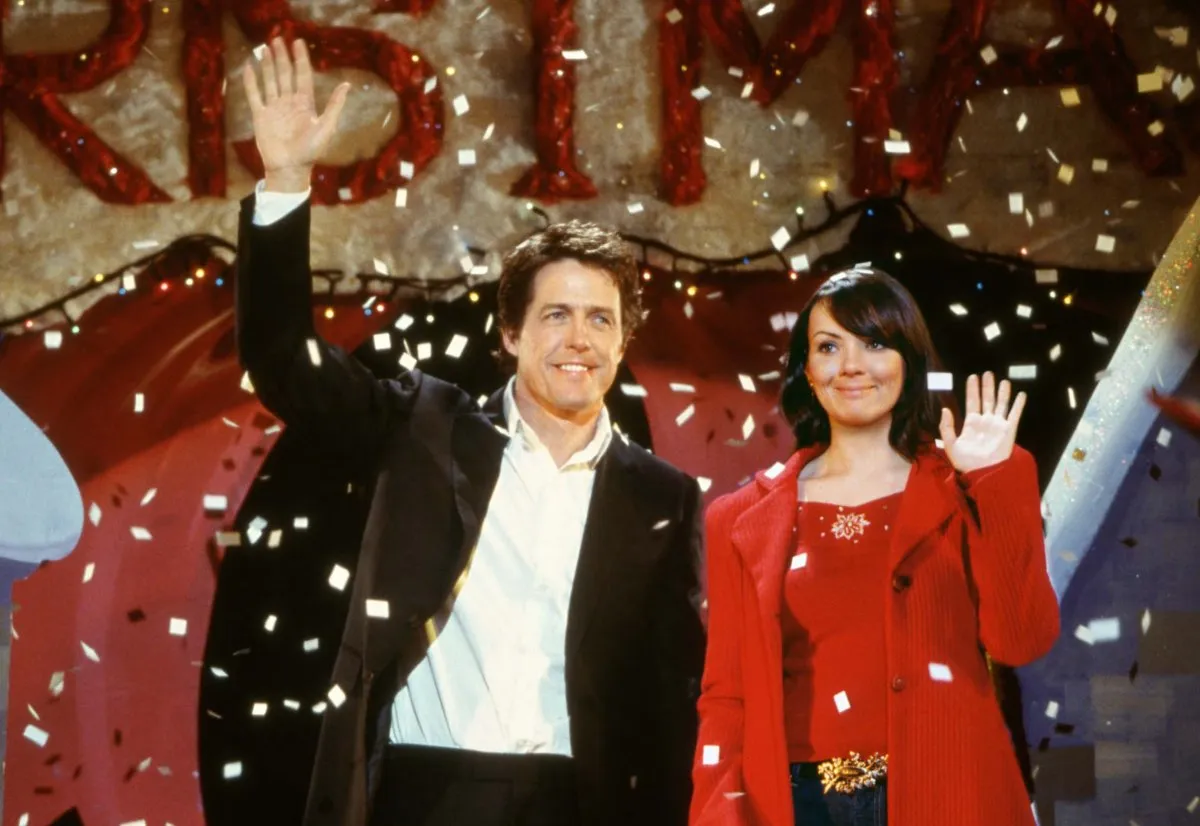
While Richard Curtis’ Love Actually is set in the modern era, it has a Mr. Darcy-level romantic love confession. The film is an ensemble story about love and relationships set during Christmas time in London. But we don’t need to worry about any of those OTHER people. We only need to concern ourselves with the wedding photographer played by Andrew Lincoln who has fallen in love with his best friend’s wife. “To me, you are perfect—And my wasted heart will love you,” he tells her. Tears. Tears for a thousand years.
Wuthering Heights (2011)
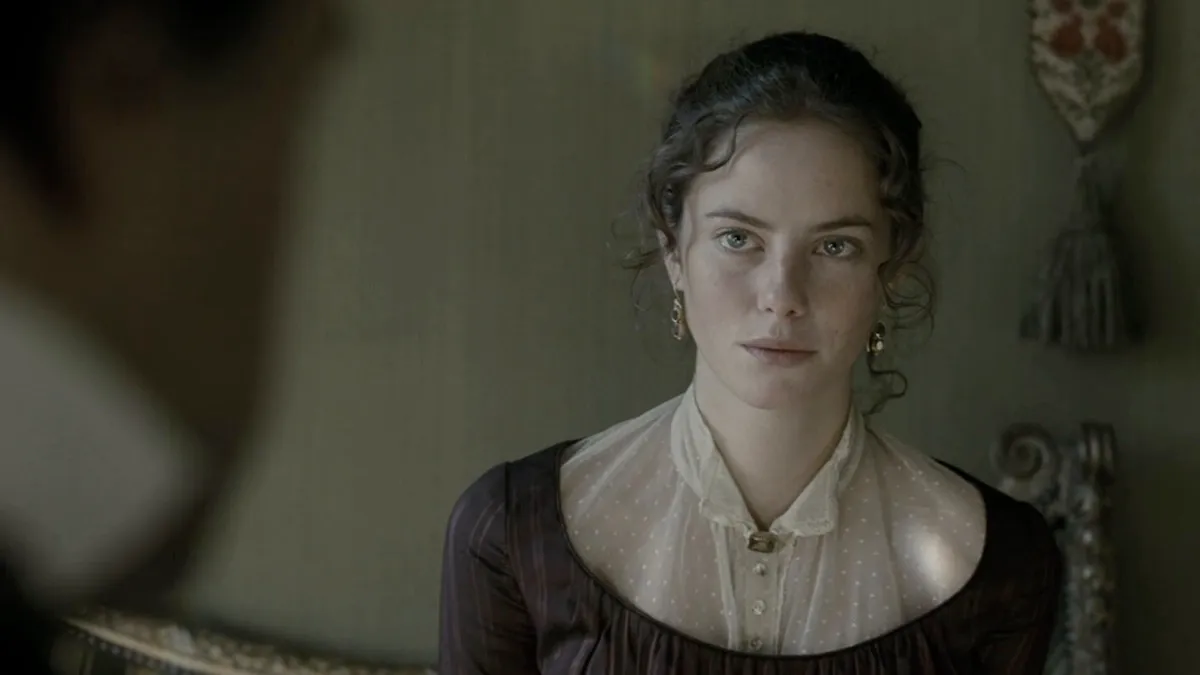
Andrea Arnold’s Wuthering Heights is a film for those who enjoy Pride and Prejudice and Pride and Prejudice and Zombies. Who doesn’t love 19th-century aristocrats dealing with the supernatural? While P&P was adapted to feature zombies by later authors, Wuthering Heights was spooky from the jump! The story is about a young orphan boy named Heathcliff who is taken in by the Earnshaw family, and Catherine, the family’s daughter. The pair fall in love, and so begins a haunted tale of passion, revenge, and g-g-g-ghosts!
Mansfield Park (1999)
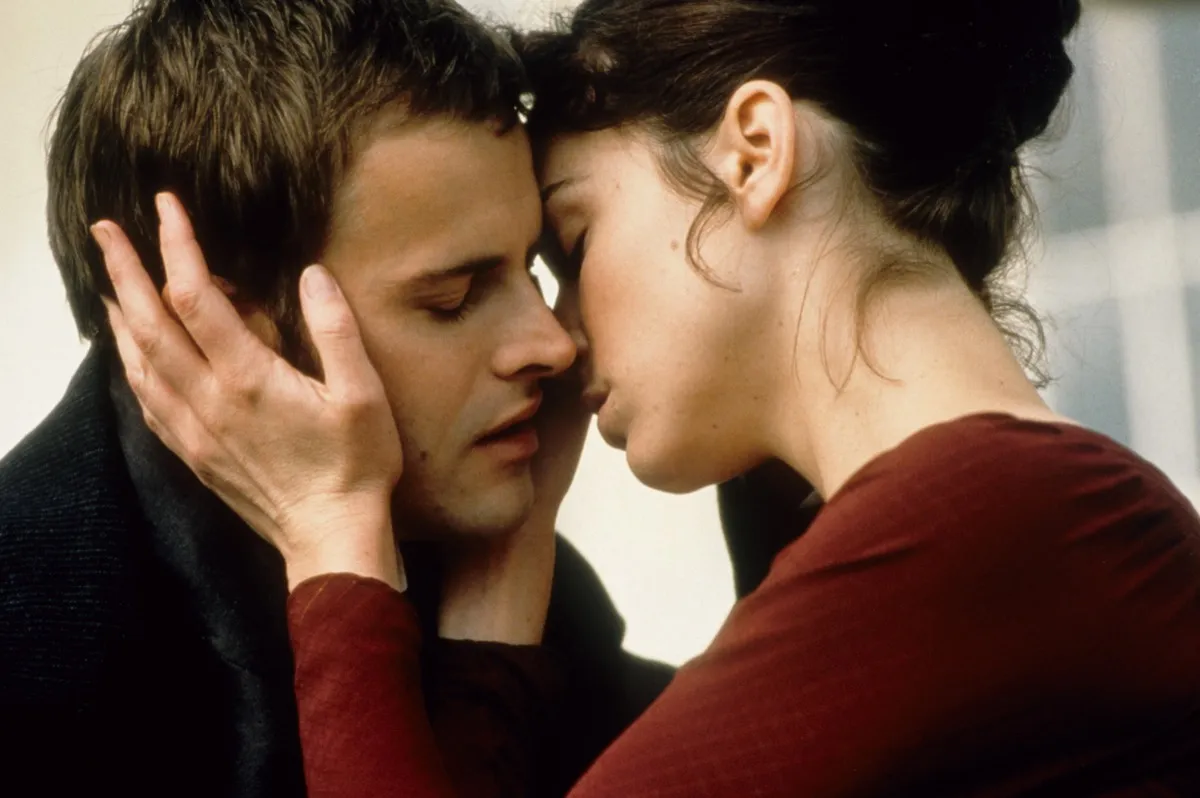
Based on another Jane Austen novel, Patricia Rozema’s Mansfield Park tells the tale of Fanny Price, a lower-class girl who is sent to live with her aristocratic relatives at their titular estate. While she is there, she does what every self-respecting member of British society does: finds the tea. And I don’t mean Earl Grey or English Breakfast, I mean the tea. Which of her cousins is talking to which young gentleman, who’s going to propose to whom, and just what Tom Bertram is spending his money on? While she is spurned by the majority of her extended family, she is treated with kindness by her cousin Edmund. Eventually, the pair fall in love.
Belle (2013)
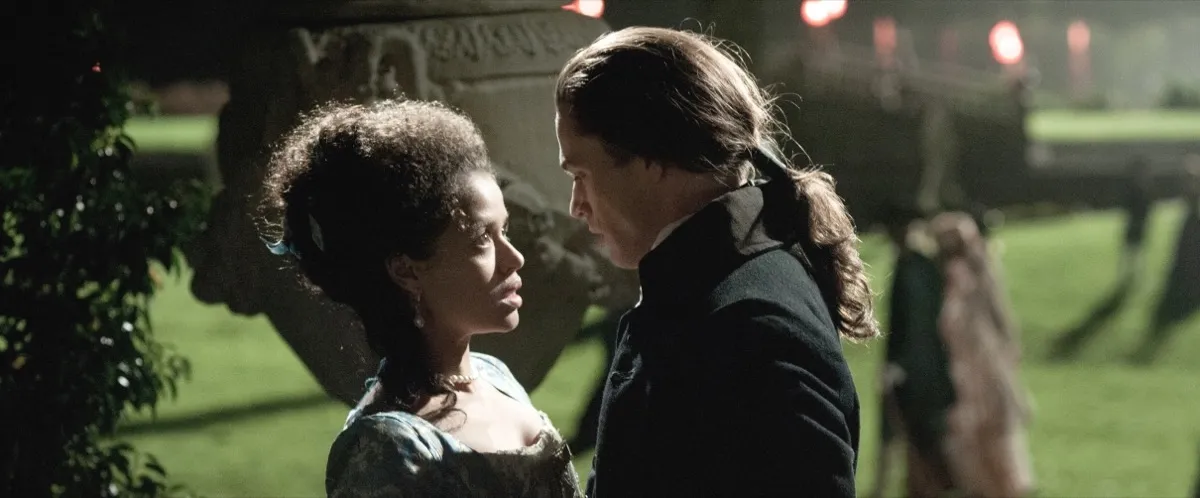
Amma Asante’s Belle is a period drama inspired by the true story of Dido Elizabeth Belle, the illegitimate mixed-race daughter of a Royal Navy Admiral. Although she is raised by her aristocratic uncle Lord Mansfield and his wife, her mixed-race identity prevents her from being fully accepted by the upper class. Nevertheless, she becomes romantically involved with a young lawyer, and the pair work together to further abolitionist causes despite pushback from family and society at large.
The Personal History of David Copperfield (2019)
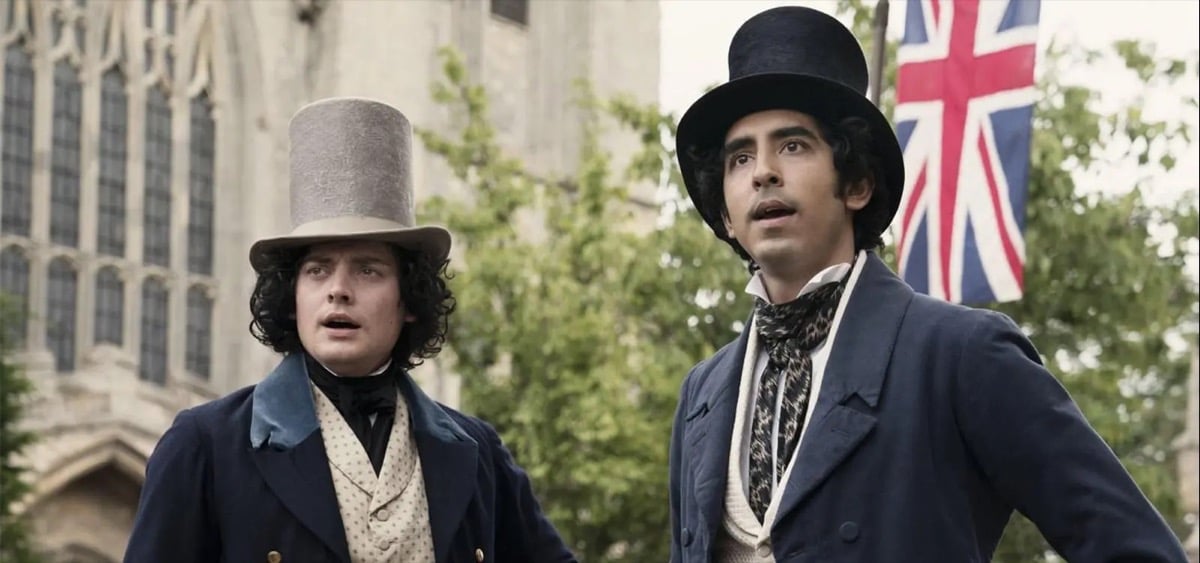
Do you remember reading David Copperfield in your high school English class? Do you remember how BORING it was? Armando Iannucci’s The Personal History of David Copperfield makes up for all that pain and suffering brought on but the original Charles Dickens novel. The film is a comedic take on the life of David Copperfield, who, after suffering from an unsurprisingly Dickensian childhood, finds happiness, love, and success through his gift of storytelling.
(featured image: Focus Features)
Have a tip we should know? [email protected]

